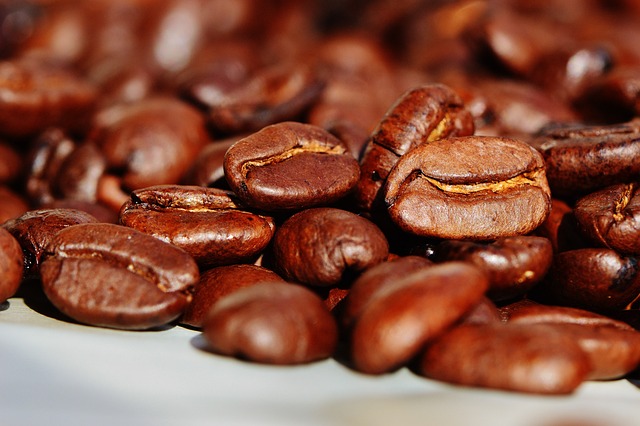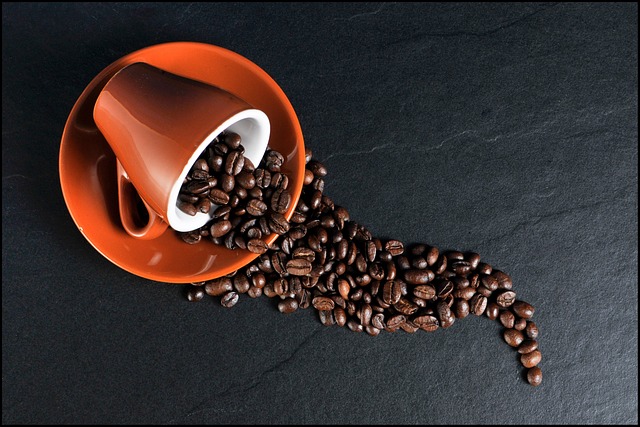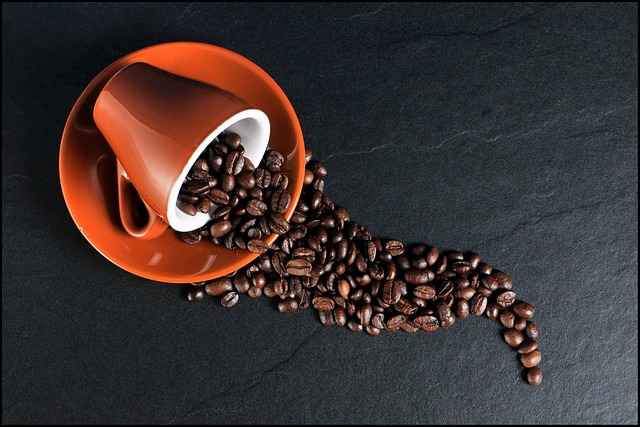Are you looking for an extra pick-me-up in the morning or a way to power through your afternoon slump? Energy drinks have become a popular solution for many individuals seeking a caffeine boost. One such drink that has gained significant attention is Boost. But with the multitude of energy drinks on the market, it’s crucial to understand what ingredients are in them and specifically, does Boost contain caffeine? In this article, we will delve into the world of energy drinks and uncover the truth behind Boost’s caffeine content. So, sit back, relax, and get ready to enhance your knowledge on one of the most sought-after energy drinks out there.
1. What Makes Boost an Energy Drink? Unveiling the Ingredients That Fuel Your Day
Boost is not just any ordinary beverage. It is an energy drink carefully formulated to provide you with the boost you need to power through your day. The secret lies in its unique combination of ingredients that work synergistically to deliver a burst of energy that keeps you going.
So, what exactly makes Boost an energy drink? Let’s uncover the ingredients that fuel your day:
- Caffeine: Boost contains caffeine, a natural stimulant that enhances focus, alertness, and overall cognitive function. It gives you that mental kick you need to tackle your tasks head-on.
- Taurine: Taurine is an amino acid that supports cardiovascular health and provides an extra energy boost. It helps improve endurance, allowing you to push through those energy-draining moments.
- B-Vitamins: Boost is packed with essential B-vitamins, such as B6 and B12, that play a crucial role in converting food into energy. These vitamins help your body metabolize nutrients efficiently, boosting your overall energy levels.
These ingredients, combined with other elements carefully selected by experts, make Boost a go-to choice for those seeking an energy-packed drink. Remember, moderation is key when consuming energy drinks, and it’s always a good idea to consult with a healthcare professional to ensure it aligns with your individual needs.

2. Behind the Buzz: Unraveling the Caffeine Content in Boost Energy Drinks
Boost Energy Drinks have gained popularity in recent years, offering a quick boost of energy for those who need a pick-me-up. One of the key factors driving its appeal is the caffeine content in these drinks. Caffeine is a stimulant that can help increase alertness and enhance concentration. However, it’s important to understand the caffeine levels in Boost Energy Drinks to make informed decisions about consumption.
When it comes to the caffeine content in Boost Energy Drinks, it’s crucial to recognize that it can vary depending on the specific flavor and size of the can. On average, Boost Energy Drinks contain around 80 milligrams of caffeine per 8-ounce serving. To put this into perspective, an 8-ounce cup of coffee typically contains 95 milligrams of caffeine. Therefore, Boost Energy Drinks generally have slightly less caffeine than a cup of coffee, but they can still provide a noticeable energy boost when consumed in moderation.
- Boost Energy Drinks typically have around 80 milligrams of caffeine per 8-ounce serving.
- An 8-ounce cup of coffee usually contains 95 milligrams of caffeine.
It’s important to note that caffeine affects individuals differently, and some people may be more sensitive to its effects than others. Factors such as body weight, metabolism, and tolerance levels can influence how someone reacts to caffeine. Due to this variability, it’s recommended to start with smaller amounts and gradually increase intake if desired, while taking note of any adverse effects. As always, it’s essential to listen to your body and make choices that align with your personal health and well-being.

3. The Energy Boost You Crave: How Caffeine Works its Magic in Your Body
Caffeine is a natural stimulant that many of us turn to for that much-needed energy boost. But have you ever wondered how it actually works its magic in our bodies? Let’s take a closer look at how caffeine affects our system.
Once you ingest caffeine, it quickly gets absorbed into your bloodstream and finds its way to your brain. There, it acts as a powerful adenosine receptor antagonist, which means it blocks the adenosine receptors in your brain. Adenosine is a neurotransmitter that promotes sleep and relaxation, so when caffeine takes over those receptors, it prevents adenosine from having its usual calming effect. As a result, you experience increased alertness and a sense of wakefulness. But that’s not all! Caffeine also stimulates the release of adrenaline, a hormone that prepares your body for action. Adrenaline increases your heart rate, blood pressure, and the supply of oxygen to your muscles, giving you an additional burst of energy.
4. Factors That Determine Caffeine Levels in Boost: Size, Flavor, and Formulation
Caffeine levels in Boost can vary depending on several factors. These factors include the size of the drink, the flavor chosen, and the formulation of the product. Let’s take a closer look at each of these factors to understand how they affect the caffeine content in Boost.
Size: The size of the Boost drink plays a significant role in determining its caffeine levels. Generally, larger-sized drinks contain more caffeine than smaller ones. So, if you’re looking for a caffeine boost, opting for a larger size might be the way to go. However, it’s important to keep in mind that consuming too much caffeine can have adverse effects, so it’s always best to enjoy Boost in moderation.
Flavor: Did you know that the flavor of your Boost can impact its caffeine content? While all Boost flavors contain a certain level of caffeine, some variations may have slightly higher or lower levels depending on the ingredients used. For example, a chocolate-flavored Boost might have a different caffeine level compared to a vanilla-flavored one. So, if you’re particular about your caffeine intake, it’s worth considering the flavor when choosing your Boost drink.
5. Decoding the Numbers: Understanding How Much Caffeine Is in Your Favorite Boost Variant
In this section, we will delve into the caffeine content of different variants of the Boost energy drink. Knowing how much caffeine you consume is important for keeping track of your intake. Here, we will break down the numbers so that you can make an informed decision about which Boost variant suits your caffeine tolerance and needs best.
Boost Original: This classic variant contains about 63mg of caffeine per 8 fl oz serving. It provides a smooth energy boost and is a great choice for those who prefer a moderate caffeine kick.
Boost High Protein: If you’re looking for an extra protein punch along with your energy boost, this variant is for you. With approximately 66mg of caffeine per 8 fl oz serving, it offers a slightly higher caffeine content than the original Boost.
Boost Sugar-Free: For those watching their sugar intake, this sugar-free variant is a popular choice. It contains around 51mg of caffeine per 8 fl oz serving, making it a lighter option in terms of caffeine content.
Boost Plus: If you need an energy boost but also require added calories and nutrients, Boost Plus is a go-to choice. It contains around 55mg of caffeine per 8 fl oz serving, providing you with the essential nutrients you need and a moderate caffeine kick.
Boost Max: This powerful variant is designed to offer the maximum energy boost. With approximately 167mg of caffeine per 10 fl oz serving, it packs quite a punch. This option is recommended for those who prefer a higher caffeine content and need that extra jolt of energy.
6. Is Caffeine Safe? Debunking Myths and Highlighting the Benefits of Boost Energy Drinks
When it comes to caffeine, there are many myths and misconceptions floating around. Allow us to debunk them and shed light on the benefits of boost energy drinks. Contrary to popular belief, consuming moderate levels of caffeine is generally safe for most individuals. Here are some facts to set the record straight:
Caffeine Myth #1: It dehydrates the body. While caffeine does have diuretic properties, the amount found in boost energy drinks is not significant enough to cause dehydration. In fact, the beverages still contribute to your daily fluid intake.
Caffeine Myth #2: It negatively affects bone health. There is no substantial evidence linking moderate caffeine consumption to weakened bones. On the contrary, some studies suggest that it may even improve bone mineral density.
Now, let’s dive into the benefits of boost energy drinks:
- Increased Alertness: The caffeine in boost energy drinks can help enhance your focus and concentration, making you feel more awake and alert.
- Improved Physical Performance: Caffeine stimulates the central nervous system, leading to increased endurance, improved reaction times, and reduced perceived exertion during exercise.
- Mental Boost: Studies show that caffeine may enhance cognitive function, including memory, attention, and mood.
- Metabolic Boost: Caffeine has been known to slightly boost metabolism and increase fat oxidation. This can aid in weight management when combined with a healthy diet and regular exercise.
Keep in mind that everyone’s tolerance to caffeine varies, and it’s essential to consume boost energy drinks in moderation. As with any food or beverage, it’s always a good idea to consult with your healthcare provider if you have any concerns or underlying health conditions.
7. Beyond Caffeine: Exploring Other Vital Ingredients and Their Impact in Boost
Boost energy drinks are popular for their caffeine content, but did you know that they also contain other vital ingredients that contribute to their energizing effects? Let’s take a look at some of these powerful components and their impact on your body:
Taurine: This amino acid is found naturally in our bodies and can also be found in Boost energy drinks. Taurine is known for its role in improving exercise performance and reducing muscle fatigue. It helps to enhance mental focus and alertness, making it an essential ingredient for a boost of energy.
B Vitamins: Boost drinks are packed with B vitamins, including niacin, vitamin B6, and vitamin B12. These vitamins play a crucial role in converting the food we eat into energy. Niacin helps to metabolize carbohydrates, proteins, and fats, while vitamin B6 promotes red blood cell production. Lastly, vitamin B12 is involved in the formation of DNA and supports brain function. The combination of these B vitamins in Boost energy drinks helps to provide a sustained release of energy throughout the day.
8. Finding the Right Balance: Balancing Your Energy Needs and Caffeine Consumption
When it comes to finding the right balance between your energy needs and caffeine consumption, it’s important to strike a healthy equilibrium. While caffeine can provide a quick boost of energy, excessive consumption can have negative effects on your health and well-being. Here are some tips to help you navigate this delicate balance:
1. Understand your energy needs: Take the time to assess your energy levels and identify any underlying causes of fatigue. Are you getting enough sleep? Are you eating a balanced diet? Understanding your energy needs will allow you to determine if caffeine is a necessary addition or if other lifestyle changes are more appropriate.
2. Limit your caffeine intake: While caffeine can provide a temporary burst of energy, consuming too much can lead to jitters, increased heart rate, and disrupted sleep patterns. It’s recommended to limit your daily caffeine intake to no more than 400 milligrams, which is roughly equivalent to four cups of brewed coffee. Be mindful of other sources of caffeine such as energy drinks, soda, and chocolate, as they can contribute to your overall consumption.
Frequently Asked Questions
Q: What is Boost and how does it differ from other energy drinks?
A: Boost is an energy drink that aims to provide a quick burst of energy when you need it most. Unlike other energy drinks, Boost contains essential vitamins, minerals, and proteins that can help support your overall health and well-being while giving you the energy boost you desire.
Q: Does Boost contain caffeine?
A: Yes, Boost does contain caffeine. It is one of the key ingredients that help provide the energy boost in this drink. However, it is important to note that the caffeine content in Boost is lower compared to some other energy drinks on the market today.
Q: Why do people consume energy drinks like Boost?
A: People consume energy drinks like Boost to combat fatigue, enhance concentration, and increase alertness. They are particularly popular among those who lead active lifestyles, need a boost during work or study sessions, or simply wish to stay energized throughout the day.
Q: What are the main effects of caffeine in Boost?
A: Caffeine in Boost can provide a temporary increase in energy levels and improved mental focus. It stimulates the central nervous system, helping you feel more awake and alert. However, it’s essential to remember that the effects of caffeine vary from person to person, and consuming excessive amounts can lead to negative side effects.
Q: Are there any risks associated with consuming Boost?
A: While Boost can provide a quick energy boost, it is important to consume it in moderation. Excessive consumption of energy drinks, including Boost, can lead to side effects such as increased heart rate, high blood pressure, sleep disturbances, and even potential risks for individuals with certain medical conditions. Always read the labels and consult with a healthcare professional if you have any concerns.
Q: Can Boost be a substitute for sleep?
A: No, Boost should not be considered a substitute for proper rest and sleep. While it might help combat temporary fatigue, it is essential to prioritize a healthy sleep routine for your long-term well-being. Relying solely on energy drinks like Boost to replace restful sleep can lead to negative health consequences over time.
Q: Are there any alternatives to Boost for an energy boost?
A: Absolutely! Boost may be a popular choice, but there are several alternatives available for an energy boost. Natural options include consuming nutrient-rich foods like fruits, vegetables, and whole grains, staying hydrated with water, and getting regular exercise. Additionally, a good night’s sleep and managing stress levels can also contribute to maintaining your energy throughout the day.
Q: Can Boost be consumed by anyone?
A: Boost is generally safe for healthy individuals when consumed in moderation. However, children, pregnant women, and individuals with certain medical conditions or sensitivities to caffeine should avoid or limit their consumption of energy drinks. For personalized advice, it is always a good idea to consult with a healthcare professional.
Q: How can I make an informed decision about consuming Boost?
A: Making an informed decision about consuming Boost involves reading and understanding the product labels, being aware of your own health conditions and sensitivities, and considering your overall caffeine intake from other sources. It’s also important to listen to your body and pay attention to any adverse effects. If in doubt, consult with a healthcare professional who can provide specific guidance based on your needs.
In Retrospect
In conclusion, we have explored the topic “Is There Caffeine in Boost? Boosting Your Knowledge on Energy Drinks” and gained valuable insights into the caffeine content of Boost energy drinks. Through our informative journey, we have discovered that Boost does indeed have caffeine, which can provide that much-needed boost of energy when we need it the most. With its invigorating blend of ingredients, including caffeine, taurine, and B-vitamins, Boost has become a popular choice for those seeking an extra kick to power through the day. However, it is essential to remember that moderate consumption is key, as excessive caffeine intake can have adverse effects on our health. So, whether you’re a Boost enthusiast or simply curious about energy drinks, we hope this article has enlightened you and empowered you to make informed choices about your energy-boosting beverages. Here’s to staying energized, informed, and making the most out of our Boosted lifestyles!






